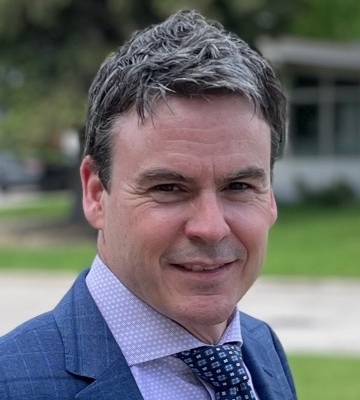Research and Teaching Interests
The Mark laboratory explores the molecular mechanisms that bacteria use to defend themselves from antibiotics, and how viruses evade host immune responses by corrupting the cellular ubiquitin system. Findings from his group are revealing weaknesses in bacteria and viruses that can be exploited as new therapeutic targets to treat infectious diseases.
Biography
Dr. Brian Mark was appointed Dean of the Faculty of Science in 2021. Prior to assuming this role, he served as the Associate Dean of Research for the faculty from 2018-2021 and remains a full Professor in the Department of Microbiology. Dr. Mark holds a Doctorate degree in Biochemistry from the University of Alberta, a Master’s of Science from the University of Manitoba, and a Bachelor of Science from the University of Winnipeg. In his role as Associate Dean of Research, Dr. Mark created opportunities for students and faculty members by building relationships with local industry and government to promote the value of science, initiated new industry-academic research partnerships, and helped build leading-edge research capabilities in the Faculty of Science for researchers and students. Dr. Mark is committed to interdisciplinary research, creating opportunities for faculty and students, and promoting the economic and social value of scientific inquiry. As Dean, Dr. Mark remains dedicated to building upon the state-of-the-art research and education offered by the Faculty of Science and generating new industry-academic partnerships and work-integrated learning opportunities for students.
Dr. Mark’s personal research interests are focused on infectious diseases. After completing his Ph.D. in 2003, he carried out postdoctoral research at Los Alamos National Laboratory, NM, USA, where he helped develop a molecular biology platform to characterize new drug targets to treat Mycobacterium tuberculosis (TB) infection. Since joining the University of Manitoba in 2005, he has focused on developing therapeutic strategies to overcome antibiotic drug resistance in bacteria and to develop new antiviral and vaccine-based approaches to protect both animals and plants against viral infection. More recently, he returned to his PhD research in human genetic disease and is currently involved in an academic-industry collaboration aimed at developing a treatment for the human genetic disorders Tay-Sachs and Sandhoff disease.
